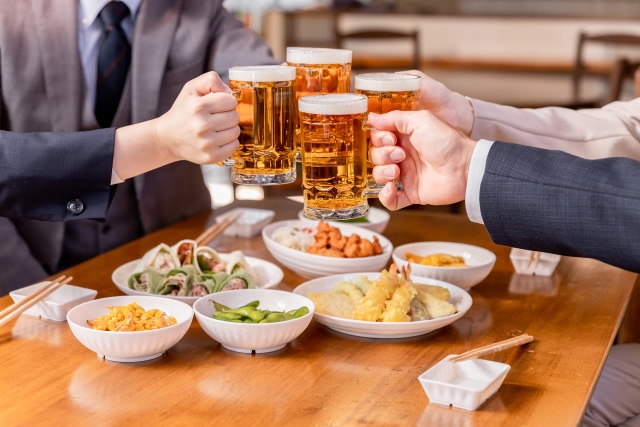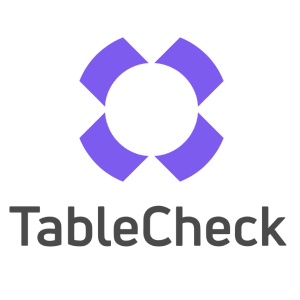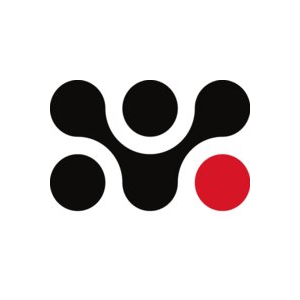Updated May 16, 2024
Who came first? Senpai-Kohai relationships and why they matter
Japanese society is hierarchical, especially in the workplace. In the office and out, the most important of these relationships is between senpai and kohai. Even someone who joined a company a few months before you is senior, and you might be training your juniors sooner than you think.
Different from a boss-worker relationship, senpai and kohai are decided by precedent. Who “came before” and those who “came after” applies to all corners of social life: work, school, and even clubs or hobbies. The structure is essential to navigating social spaces in Japan.
East Asian society is influenced by Confucianism, which spread to Korea and Japan from China. The system centers on respect for parents, elders, and ancestors, and strict hierarchies in family and social institutions.
This vertical structure is still reflected in Japanese business life and company organization today.
So what do senpai and kohai mean? Let’s first take a look at the definitions before moving into exploring social situations.
In this article: 📝

1. The Senpai-Kohai relationship
Put simply, the terms refer to who came “before” and “after.”
• Senpai (先輩) “someone born before you”
1. Someone older, higher status, with more experience, of greater academic or technical skill
2. Predecessor
3. Someone who enrolled or graduated a school or who joined a company before you
From the Nihon Kokugo Daijiten
• Ko(u)hai (後輩) “someone born after you”
1. Someone who was or will be born after you, or will succeed you in academia, the arts, and other pursuits of knowledge, etc; the next generation
2. Someone who is in a lower grade in school, or came to place such as a region or company after you
3. People behind you
From the Nihongo Kokugo Daijiten
The concept is simple enough. But sometimes situations aren’t so simple.
At my current job, most employees join after working somewhere else, so my immediate senpai is two years younger than me, and my kohai 10 years older.
I faced a similar situation when I studied abroad at a university in Japan. It was my second year in college, but I enrolled with the freshmen. I was six months to a year older than the freshmen, but I was kohai to the sophomores.
If you are the same grade or year in school, you are called doukyuusei (同級生), and if you joined a company the same time, you are douki (同期). If you are the same age, you are onaidoshi (同い年).
Being doukyuusei or douki usually makes everyone equal, even if you are different ages. I was doukyuusei with the freshmen because we enrolled at the same time. When I joined my first company, I was douki with new college grads when I had attended grad school.
It is important to remember that the hierarchy of the institution and who joined first outweighs everything else. Being onaidoshi does not make you equal to a senpai. You can’t claim to be a higher rank based on age only.

2. The Joushi-Buka relationship
“There are two things you can’t choose in this life: Your parents and your boss.”
— My first boss
The structure of a Japanese company is hierarchical, and even terms used to describe it relate to being “above” or “below.” The most important organizational dynamic is the joushi-buka relationship – you and your boss.
• Joushi (上司) “boss”
Someone who has a higher managerial or executive position
(Another common term is joucho 上長)
• Buka (部下) “subordinate”
Someone who works under a boss
What makes this different from the senpai-kohai relationship? If someone is your joushi, they are your senpai by default, since they most likely joined the company before you. But just because someone is your senpai does not mean they are your manager or boss.
Take two of my former coworkers. They joined the company at the same time (douki), but one was shinsotsu (新卒) and the other had had a previous job and was around 5 years older. This was probably not an issue until 30 years later when the younger one became the boss.
The situation created a mismatch in age and rank in the company structure. While working together for so long built trust and respect between them, my coworker would openly criticize our boss or bully him. Not the best example of good communication.
It was uncomfortable for me at the time. One of them was a senpai who gave me daily tasks, and the other was my boss. It was hard to figure out who I should listen to when they disagreed about something, especially a big decision.
The most important difference between senpai and joushi is that the latter has decision-making power. A senpai can give you feedback, make suggestions and mentor you, but only joushi have the power to officially assign you tasks or make decisions.
In the end, my boss had a higher rank and final say. But sometimes, it is a good idea to consult with the next rung up the ladder in private. The higher ups are responsible for managing these relationships and can have the bigger picture in mind.
While a senpai may not have decision making power, you still need to be respectful toward them and consider their feedback. Their job is to mentor you. Even if they are pushy, being impolite to them will reflect badly on you.
Besides doukyuusei and douki, there is also the term douryou (同僚) “colleague, coworker.” This is a more general term for the people you work with. A senpai can be a douryou, but you might not want to call your boss that.
Some other Japanese hierarchy terms
You can generally refer to everyone of a higher social position as you – at work, at school, in life – as meue (目上), which literally means “eyes up.” Meue are your boss, your parents, your teachers, your senpai. They are the people you should speak to in keigo.
And, you guessed it – everyone below you is meshita 目下, “eyes down.” The word meshita does not have the best nuance (looking down on people). Avoid saying it, or worse, being a jerk who looks down on your kohai!
3. Senpai-Kohai and Joshi-Buka relationships: A two-way street
It’s important to remember that senpai-kohai and joushi-buka relationships are reciprocal. You have to be polite and respectful to people who are meue, but it is also their responsibility to mentor and guide you.
One thing I noticed working with those two douki is that senpai can approach their role in two ways: Make kohai experience the same things they did, suffering and all, or give advice to end cycles of bullying.
One was the former and one was the latter. However, I still learned from both of them. Managers and senpai have a lot of power, but also a lot of responsibility. If you make a mistake under their watch, they have to apologize to the affected party. (Not that they won’t chew you out too.)
I once lost my temper with someone from another department. (Never use the word mendokusai in a business setting!) My boss got an angry call. He sat me down. He told me that he had gone and apologized for me.
Once I told him what had happened, he sighed and apologized to me. It was the kind of abuse he had gotten over the course of his own career. (A polite request was refused rudely.) He said he had failed as a senpai, since he wanted to end that kind of treatment for our department.
Unfortunately, he did have to go around more than a few times apologizing for me, even after that. I definitely failed as a buka and a kohai by causing unnecessary trouble. But through those hiccups, I learned that he was a senpai and boss that I could trust.
On the other hand, there can be senpai who want you to muddle through and suffer like they did. It’s the “we walked to school uphill both ways” vibe. But be careful here — hazing or other continued attacks on your character and value as a person is harassment.
If a senpai or a boss does the following repeatedly, then it may be time to get a higher up or HR involved:
- Telling you are doing something wrong without giving you concrete feedback to improve
- Reprimanding or scolding you in front of other people or where other people can hear
- Making statements insulting your worth as a person instead of evaluating your work
Power harassment isn’t just from above. Be careful about not treating your senpai or boss this way either. Just because you are a kohai doesn’t let you off the hook for using your position to harass someone.
4. Social expectations: Speaking
Japanese incorporates politeness and respect into the words you use. Polite speech is called keigo (敬語). There are also even higher levels of polite speech:
- sonkeigo (尊敬語) “honorific language”
This refers to the words you use to talk about meue people, like senpai. You do not use it when referring to yourself or people in your company when speaking to other companies.
- kenjougo (謙譲語) humble language
This refers to the words you use to talk about yourself or people at your company to “lower” yourself. You even use this to talk about your boss or coworkers when speaking to people from other companies.
Using these speech styles is hard even for Japanese people. (I have seen Japanese coworkers crash and burn.) You have to relearn the most basic verbs and master complicated grammar. But as I said in my last article, keep it simple.
As a foreigner, the most important thing is being understood. Don’t try to use some complicated phrase. You are most likely to get it wrong and cause hiccups in communication. Stick to normal keigo.
Use simple desu-masu style. For example, instead of arigato “thank you,” say arigatou gozaimasu. Instead of ohayou “good morning,” say ohayou gozaimasu. Otsure sama desu is safer than just otsukare.
You don’t need to speak Japanese to get a job in Japan, but little things like this go a long way. It shows your boss and coworkers that you understand social customs and office hierarchy, which reflects well on you.

5. Social expectations: Eating and drinking
Hierarchical relationships in the office extend to socialization off the clock too.
In the traditional Japanese corporate structure, your salary goes up according to years at the company and age. Senpai often treat kohai to food and drinks as part of the relationship.
It is understood most of the time that senpai will pay, but not showing gratitude or outright asking them to pay is rude. When they offer, insist on paying. Reach for your wallet. Thank them several times when they do pay for you.
The more serious you are about the gesture, the more you show how thankful you are that they are spending their money on you. Don’t forget to treat your kohai in turn!
In exchange, kohai are expected to look after senpai at gatherings and other social settings.
Say you are at an office nomikai (飲み会) “drinking party.” You should make sure that not only your bosses, but also your senpai, get their food and drinks first. You should wait to take the first sip after a toast and not start eating until you see your boss touch their food.
Make sure that senpai’s glasses are never empty, whether it be pouring them a refill from a communal bottle or taking their order. If you have kohai of your own, let them attend to your glass instead of pouring your own.
If you have a family-style course menu, which is often the case for large nomikai, you can also take over serving items onto plates or making sure everything is passed around. Make sure to try to serve your boss, and then other senpai, before yourself or others down the ladder.
How seriously these rules are followed depend heavily on the group. Is it a strict corporation with a rigid power structure? Is it a more equal and friendly startup? Try to read the room. It’s better to overdo it a little than to not try at all.
I had a particularly funny executive who asked all the new hires out for a drinking party. Here we were, fresh grads, shaking in our boots in front of someone who joined the company long before we were even born; a dai-senpai (大先輩) “super senpai.”
When food was served, we all stared at his hands. He noticed and very dramatically took a comically small bite of one dish. With a laugh, he told everyone to relax and enjoy themselves. Not everyone in positions of power will be strict about social customs.
6. Summary: Senpai-Kohai and Japanese social customs
Social hierarchy is an important part of life in Japan. The most important relationships found in the office are senpai-kohai and joushi-buka. The power balance in the former even extends to organizations like clubs and other activities off the clock too.
You won’t be expected to be well-versed in these concepts, especially if the company you join is more informal. But being familiar with the dynamic will help you navigate relationships and impress your Japanese coworkers.
At the end of the day, these relationships are about politeness and respect, which are universal. If all else fails, think of the golden rule: Treat others how you would want to be treated.
Get Job Alerts
Sign up for our newsletter to get hand-picked tech jobs in Japan – straight to your inbox.







